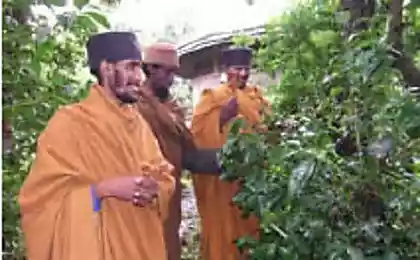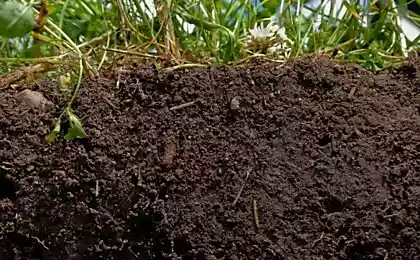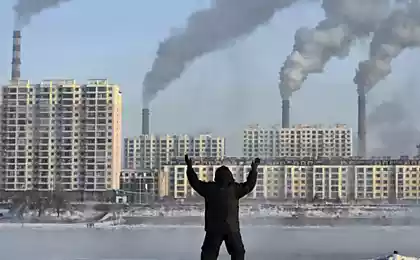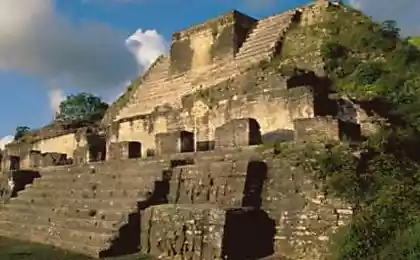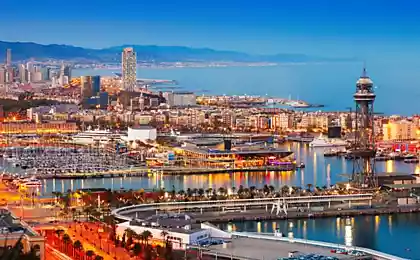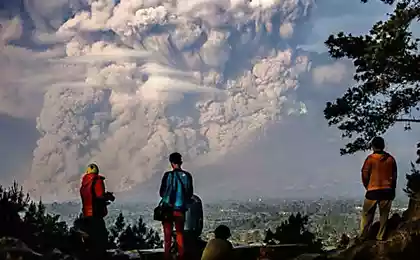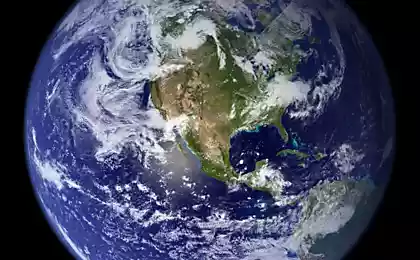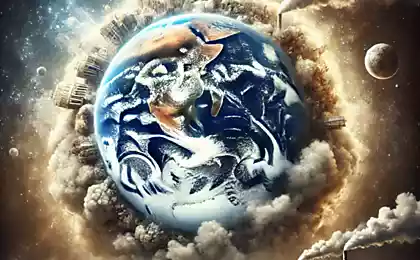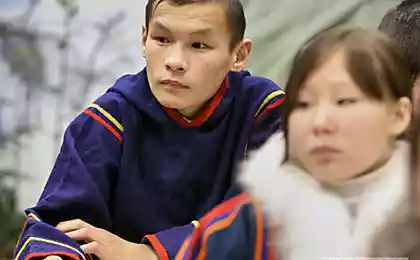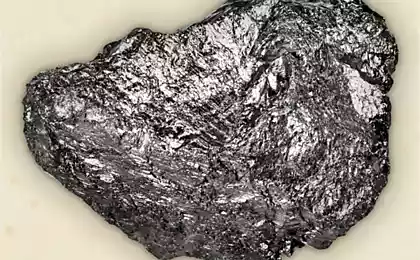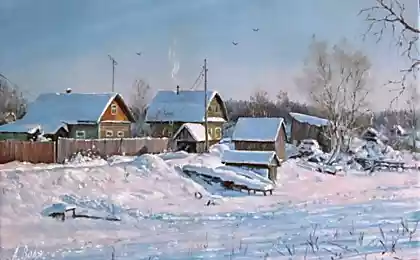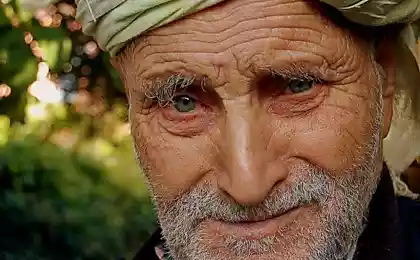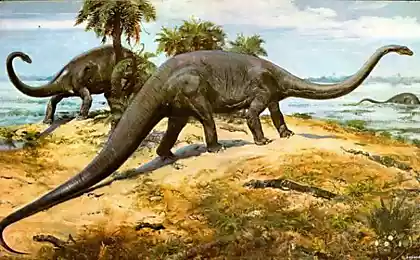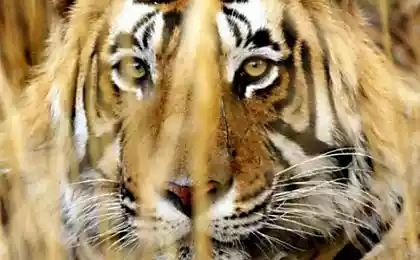607
Climate change has changed the life of the Nenets
Nenets living on their land nomadic life unchanged for centuries. But now these people expect change, because the effects of global climate change, and touched them.
9 ph via Bigpicture
1. The 700-kilometer Yamal Peninsula in Siberia - one of the largest wildernesses Russia and the birthplace of nomadic Nenets people. For centuries, the Nenets graze their domesticated reindeer to summer pastures above the Arctic Circle. But now the traditional way of life of the Nenets threatened by climate change. (Yuri Kozyrev / Consequences by NOOR)
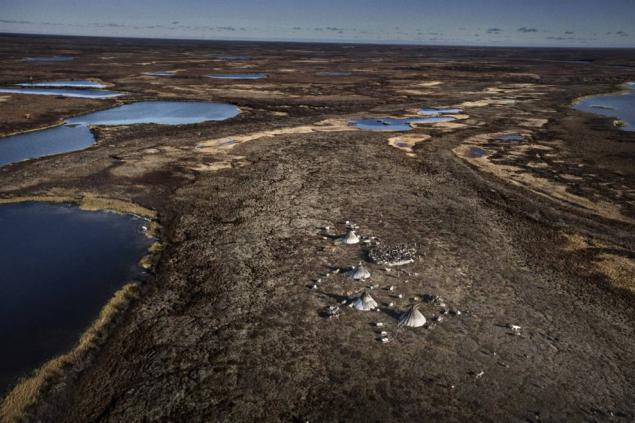
2. Nenets families live in the tundra covered with reindeer skin tents. Until recently, the Nenets crossed the frozen river Ob to break their camps further south. But now their trips increasingly postponed until the end of December, when the river is frozen enough. (Yuri Kozyrev / Consequences by NOOR)
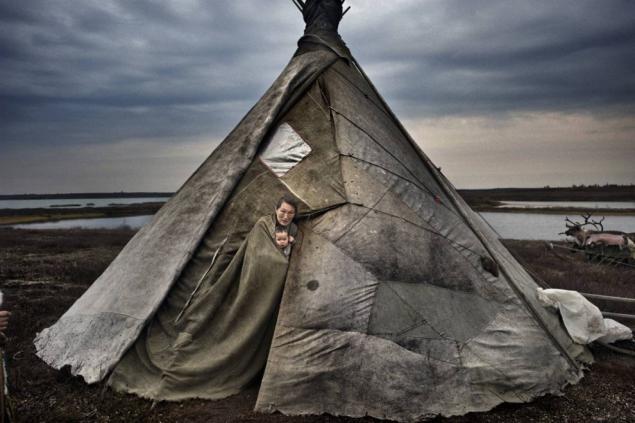
3. Nenets gather wood for a fire in the parking lot. The peninsula is 2011 km north-east of Moscow, and the Nenets migrate from north to south over a distance of 160 km each year. They spend a few days in one place and live off reindeer and fish. (Yuri Kozyrev / Consequences by NOOR)
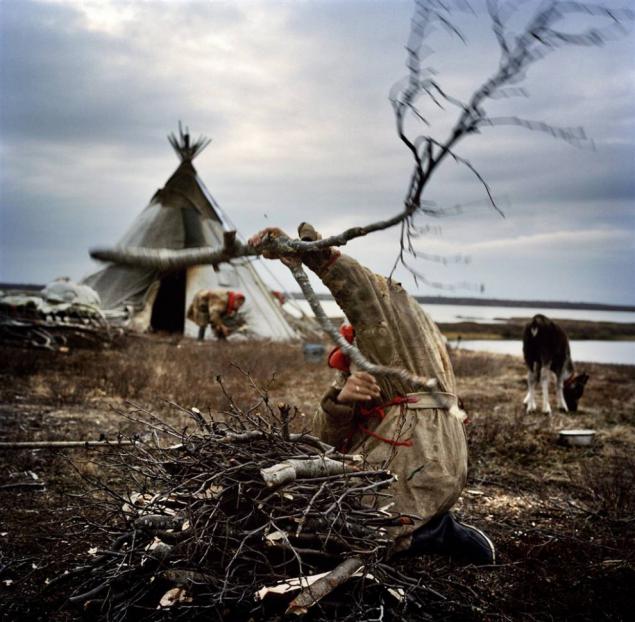
4. Nenets reindeer herder preparing lasso. Nenets culture relies on the reindeer as the main source of food and clothing. However, climate change affected the deer. Delays in annual migration to the south mean lack of fresh pasture to feed the herds before spring. (Yuri Kozyrev / Consequences by NOOR)
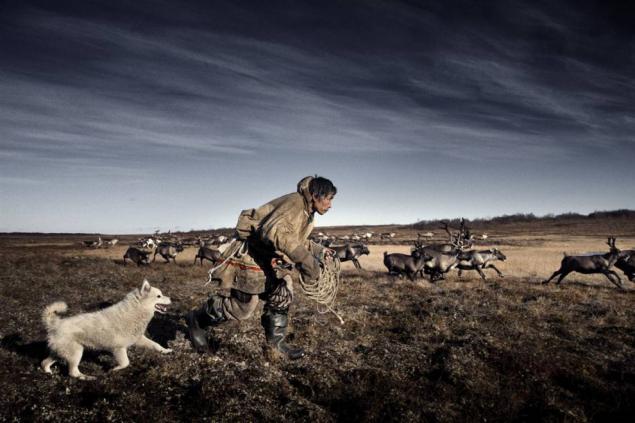
5. The Nenets people are traveling with their herds of domesticated reindeer, using arcane when it comes time to kill one of them. (Yuri Kozyrev / Consequences by NOOR)
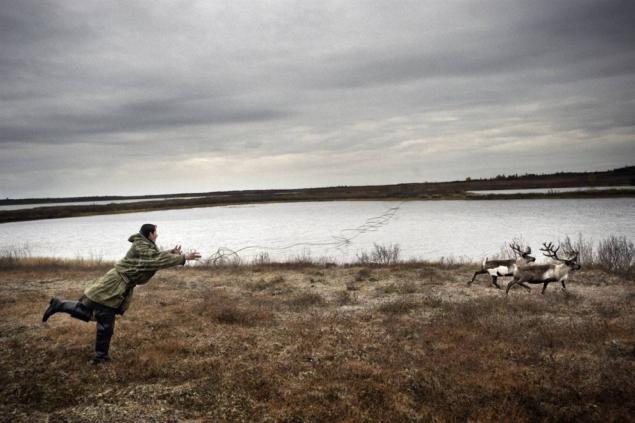
6. Nenets family eating raw reindeer meat with noodles. One family kills a deer once every two weeks. (Yuri Kozyrev / Consequences by NOOR)
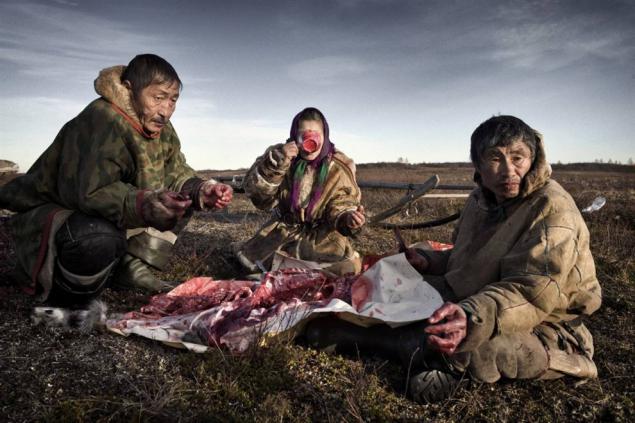
7. This Nenets Vasily Ivanovich - tribal elder. The peninsula is home to around 42,000 Nenets. Once it was a large number of nation, but now the number of its representatives has declined sharply against the background of the natural gas industry workers. (Yuri Kozyrev / Consequences by NOOR)
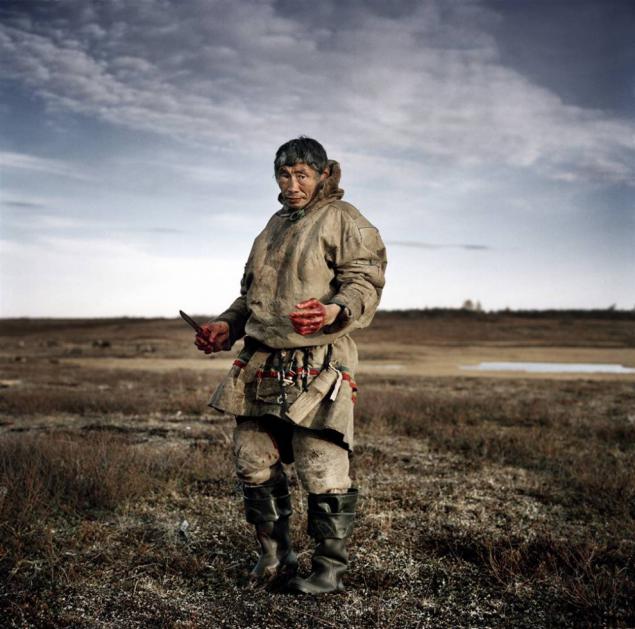
8. In the Nenets language Yamal means "end of the world." Like much of the Arctic Yamal he stuck in the band of permafrost - the territory, which was considered in deep permafrost. However, the permafrost begins to melt in some places, and if the thaw lasts too long and is too strong, the ground begins to give off methane - a greenhouse gas more potent than carbon dioxide. (Yuri Kozyrev / Consequences by NOOR)
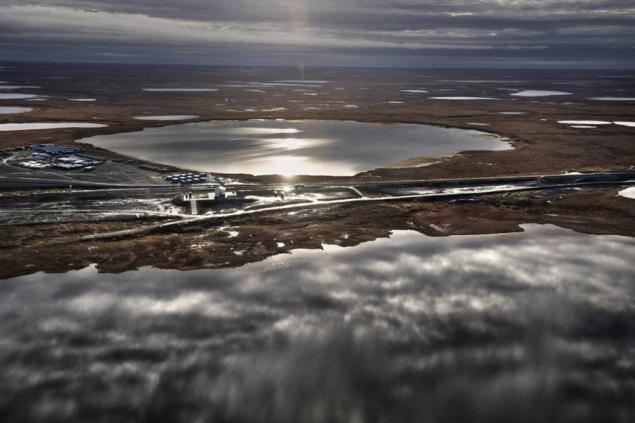
9. Mobile phones, though sometimes difficult, are part of the Nenets life. On the Peninsula there are huge reserves of natural gas. He is already Russia's largest gas field and drilling continues. Most of the gas is exported to Europe. Experts environmental fear that drilling can damage the fragile ecology of the peninsula. "Gazprom" is already building a new pipeline, railway stations and several bridges. (Yuri Kozyrev / Consequences by NOOR)
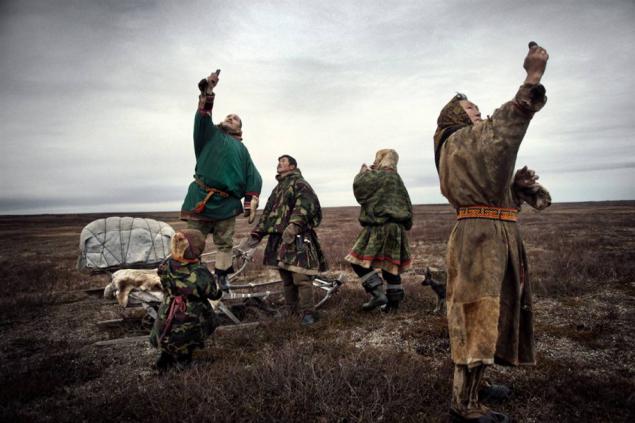
Source:
9 ph via Bigpicture
1. The 700-kilometer Yamal Peninsula in Siberia - one of the largest wildernesses Russia and the birthplace of nomadic Nenets people. For centuries, the Nenets graze their domesticated reindeer to summer pastures above the Arctic Circle. But now the traditional way of life of the Nenets threatened by climate change. (Yuri Kozyrev / Consequences by NOOR)

2. Nenets families live in the tundra covered with reindeer skin tents. Until recently, the Nenets crossed the frozen river Ob to break their camps further south. But now their trips increasingly postponed until the end of December, when the river is frozen enough. (Yuri Kozyrev / Consequences by NOOR)

3. Nenets gather wood for a fire in the parking lot. The peninsula is 2011 km north-east of Moscow, and the Nenets migrate from north to south over a distance of 160 km each year. They spend a few days in one place and live off reindeer and fish. (Yuri Kozyrev / Consequences by NOOR)

4. Nenets reindeer herder preparing lasso. Nenets culture relies on the reindeer as the main source of food and clothing. However, climate change affected the deer. Delays in annual migration to the south mean lack of fresh pasture to feed the herds before spring. (Yuri Kozyrev / Consequences by NOOR)

5. The Nenets people are traveling with their herds of domesticated reindeer, using arcane when it comes time to kill one of them. (Yuri Kozyrev / Consequences by NOOR)

6. Nenets family eating raw reindeer meat with noodles. One family kills a deer once every two weeks. (Yuri Kozyrev / Consequences by NOOR)

7. This Nenets Vasily Ivanovich - tribal elder. The peninsula is home to around 42,000 Nenets. Once it was a large number of nation, but now the number of its representatives has declined sharply against the background of the natural gas industry workers. (Yuri Kozyrev / Consequences by NOOR)

8. In the Nenets language Yamal means "end of the world." Like much of the Arctic Yamal he stuck in the band of permafrost - the territory, which was considered in deep permafrost. However, the permafrost begins to melt in some places, and if the thaw lasts too long and is too strong, the ground begins to give off methane - a greenhouse gas more potent than carbon dioxide. (Yuri Kozyrev / Consequences by NOOR)

9. Mobile phones, though sometimes difficult, are part of the Nenets life. On the Peninsula there are huge reserves of natural gas. He is already Russia's largest gas field and drilling continues. Most of the gas is exported to Europe. Experts environmental fear that drilling can damage the fragile ecology of the peninsula. "Gazprom" is already building a new pipeline, railway stations and several bridges. (Yuri Kozyrev / Consequences by NOOR)

Source:
